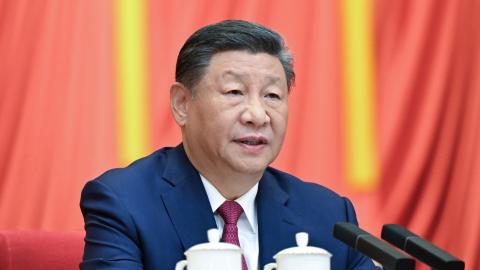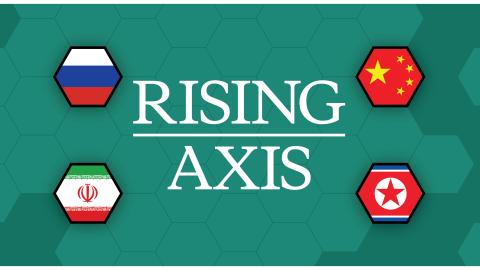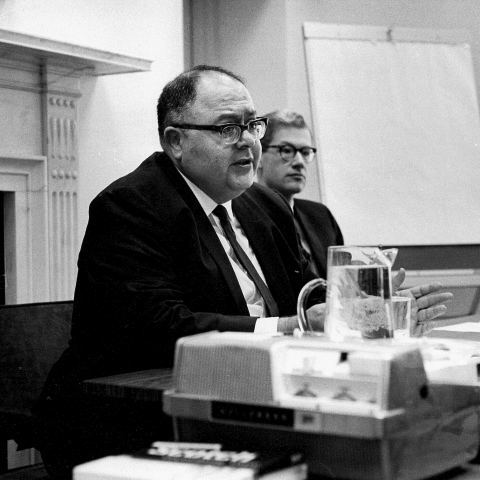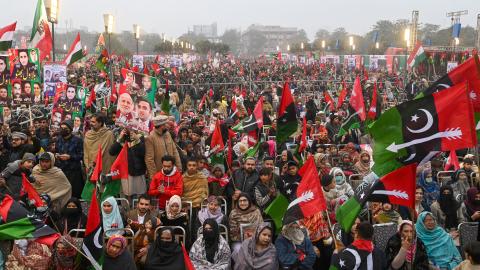In the 2016 US presidential elections, libertarian conservative satirist P J O’Rourke explained his decision to vote for Democratic Party candidate Hilary Clinton with the words, “She’s wrong about absolutely everything, but she’s wrong within normal parameters.”
O’Rourke’s ideology may have been closer to that of the Republican Party but his idea of what is and is not normal for a politician made him turn his back on his preferred party’s candidate.
Reading this anecdote made me wonder if some Pakistanis, too, felt the same way. Politics in every country has a parameter of normalcy – what should or should not be done. Some politicians may have views or ideas that we do not agree with. But their behaviour falls within the parameters of normalcy.
Professional politicians often tend to respect these parameters. Celebrities hoping to tap frustration and unhappiness with professional politicians enter politics with bombast, threats, and actions that simply do not conform to their country’s political norms.
Do parameters of normal behaviour even exist in Pakistan? And in the absence of such parameters, can electoral democracy function effectively? When the country is not under direct military rule, Pakistan’s political system works in four almost predictable stages.
In stage one, a politician is elected in an election that his/her opponents consider manipulated. In stage two, that leader is dismissed or removed from office, followed by stage three, when he/she is disqualified from a future election. Stage four arrives when the once popular, elected leader is arrested and charged with assorted crimes.
Even in this cycle of elect-dismiss-disqualify-arrest, politicians can behave in a way that enables them to return to power. For those who disagree with them, that would amount to being wrong within normal parameters. But a celebrity outsider might see his ‘overwhelming popularity’ as a way to overthrow the existing political order. This decision to act outside the parameters of normalcy has the potential to energize fans and cult-like supporters of anti-establishment politicians. But it also puts off many who do not like upheavals.
The common person usually prefers improvements in his/her life without mayhem. That, more than anything, is the reason why disruptive politicians fail after the subsiding of their initial shock value. Given the penchant of many in Pakistan for revolutionary rhetoric, it is important to remind people why revolutions are few and far between. Getting the vast majority of people to risk stability for some utopia is never easy.
In addition to setting the parameters for normal politics, Pakistan’s politicians also need to work on developing some self-awareness and recognizing the value of humility. Public support and popularity are heady brews. They can sometimes go to one’s head and make one dismiss all critiques as the work of one’s enemies. That is why it is said (though not conclusively established) that Roman emperors considered it necessary to be reminded of their mortality in their most glorious moments. In triumphal parades, someone stood behind the emperor, constantly reminding him, ‘Look behind you. Remember you are a man.’ [Respice post te! Hominem te memento!].
Such caution was not limited to the Roman emperors. One of India’s founding fathers, Jawaharlal Nehru, wrote an article criticizing himself in 1937 and had it published anonymously under the pseudonym, Chanakya. The article spoke of Nehru’s command of the crowd, as well as his popularity, prestige, and influence. But it added, “Men like Jawaharlal, with all their capacity for great and good work, are unsafe in a democracy…. He calls himself a democrat and a socialist…but every psychologist knows that the mind is ultimately a slave to the heart and that logic can always be made to fit in with the desires and irrepressible urges of man. A little twist and Jawaharlal might turn into a dictator.”
Nehru served as independent India’s first prime minister and in his long tenure (1947-1964), he never acted like a dictator. If anything, Nehru can be credited with laying the foundations of the successful Indian experiment in constitutional democracy. The awareness of his autocratic tendencies, identified in the article he wrote about himself, led Nehru to resist the temptation to exercise dictatorial powers.
Years later, while Nehru was India’s prime minister, New York Times correspondent C L Sulzberger asked him if he had really authored the piece criticizing himself. “Yes”, he conceded, “I wrote it for amusement, sent it to a woman friend who had it published. Nobody guessed I was the author. Gandhi was even indignant, thinking some enemy was attacking me.” Sulzberger asked if Nehru thought his character judgment was correct. He replied: “I suppose if a man can see such weaknesses inside himself and discuss them, this is advance proof he will never succumb to them.”
With one or two exceptions, Pakistan’s current leaders do not publicly acknowledge their mistakes, flaws, or negative tendencies. There is little indication that they do so in private either. Pakistan’s ‘Maula Jatt’ political culture requires everyone to blow their own trumpet and proclaim their own greatness. There is no shortage of sycophants either, who reinforce the delusions of grandeur of dynasts and populists alike. Celebrities are often prone to narcissism. But even professional politicians in Pakistan have no one to remind them of their mortality.
In addition to asking them to set the parameters within which they will oppose one another, and the country’s establishment, in their pursuit of power, Pakistan’s political leaders should also be asked to write an auto-criticism similar to Nehru’s 1937 Chanakya article. Only those willing to recognize their weaknesses will likely be the ones who do not inflict these weaknesses on an already beleaguered nation.













